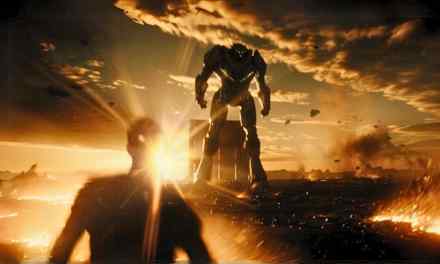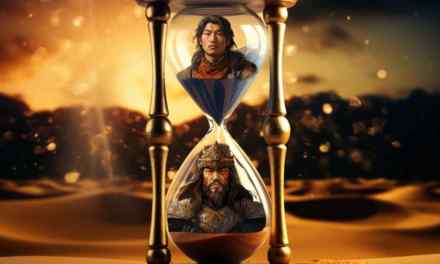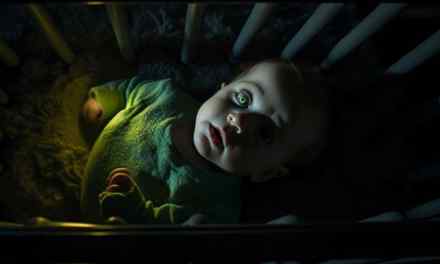It’s always struck me that the expression of George Washington on the dollar bill is that of a man unhappy with my behavior but unwilling to tell me what I am doing wrong. This explains my sad income history, and the marriage to Della who owns a barbershop. Every time I went there to get a haircut, I was impressed by the size of Della’s tits, and she was always talking about how she hadn’t seen her husband Toby in three or five months since he was stationed in San Diego or Diego Garcia or Garcia Lorca or one of those places. She never said she didn’t love him, but you didn’t have to be Stephen Hawking to figure out that any woman who’s got two kids under the age of five and the only time she sees her husband is when he stops by to knock her up, is ready for a change. So Gary O’Halloran—that would be me—made his move.
That was a good marriage for a while. Della earned enough to support us, and I worked on perfecting the Foucault engine that was going to make us rich. I would have done it, too, if her brats hadn’t been coming into the workshop every thirty-seven minutes to ask me to make them a PB&J or bind up their wounds. Though Della could still arrange my body in any way she saw fit, I began to understand Toby and the service he did for his country a little better.
At MIT I majored in physics but I didn’t graduate because of the death of my father and growing fondness for cannabis and a number of other matters that I am less able to define clearly and to tell the truth about it I have some trouble remembering them. Romantic conundrums. By the time I was a second-semester junior I understood thermodynamics better than I understood women, and women better than I understood myself. Thermodynamics is about the behavior of particles, viewed statistically; that is, you can’t tell what one particle is going to do, but if you get a couple of trillion of them together, you can pretty much predict exactly what they will do as a group. Women, though you can say some things about them as a group, will still surprise you. As for me, I always surprise myself, and I pay for it.
When Della threw me out I took my engine and moved into a studio apartment in a big brick 1940s-era building in a slightly dicey part of town. The apartment was completely empty except for a box of twelve brand-new Titleist golf balls I found on the floor of the closet. The engine I set up beside the old claw-footed bathtub in the bathroom.
The problem with an engine powered by the rotation of the Earth is that you cannot turn it off. If you built enough of them, they would gradually steal all of the Earth’s angular momentum and the day would lengthen until the sun stood still in the sky, and then eventually start going backward. Of course that would probably take thirty or forty billion years, so I would say that the environmental drawbacks of the Foucault engine are relatively minor.
But if I am ever to become rich and powerful, this is my ticket.
* * *
Past the gate, behind the houses, is an alley. A trickle of water runs down the middle of the broken concrete spotted with oil, trashcans along the board fences, chicken wire, gravel parking spots. Behind one of the houses two men are working on a 1965 Ford Galaxie, a car that strikes you as absurdly large, maybe a block long. The driver’s door is open and a girl sits in the front seat, smoking a cigarette.
The men have the hood up and are bent over the engine compartment. The distributor cap is off. One of them is using a set of feeler gauges to reset the points. A transistor radio on the fender plays “Help Me Rhonda” by the Beach Boys. It’s a bright, cool day, blue sky and a breeze from the lake.
The girl, maybe eighteen, wears black pedal pushers and a yellow blouse. Her hair is pulled back into a ponytail. The men both wear white T-shirts and blue jeans with engineer boots. One of them has a denim jacket over his T-shirt. The other has a pack of cigarettes rolled up in the short sleeve over his biceps; without taking his eyes from the engine he unwraps the pack from his sleeve and pulls out a cigarette.
The guy in the denim is fitting a timing light to the lead spark plug. He takes a piece of chalk and marks the flywheel to make the timing mark show better in the dim interior. The cigarette guy calls out, “Start the engine.” The girl turns the ignition, there is a click, but the starter motor does not catch. She tries again. Nothing.
“Okay, quit it!” the jacketed man says in annoyance.
The two young men stand back. One of them spits on the ground. “Shit!” he says. “We need a new starter.”
These are the kind of guys who made you nervous all the time you were growing up, what they called “delinquents.” Their cerebrum is okay for car repairs, but something inside them is broken. Now that you are older you can see how they are trying to fill out their shirts and make themselves into something. They aren’t even aware that they are doing this. But it makes them no less dangerous—perhaps even more so.
Or maybe they aren’t dangerous at all. Just boys.
“Have you checked the solenoid?” you ask.
All three heads turn your way. They see you. Neurons fire. “What are you talking about, Melvin?”
“My name is not Melvin,” you say. You walk up close. “That’s a big car.”
“Three-fifty horses.”
“All of them useless if your solenoid is burnt out.”
The girl snickers. The guy with the cigarettes in his sleeve turns on her. “What?” he says.
“All those horses and a bad solenoid,” she says.
The guy in the denim jacket laughs. T-shirt guy stares at you. He peers as if he has trouble recognizing your face. Are you an object? An animal? He can’t make you out.
Something is off. You squint up at the sky. Cirrus clouds, high wispy commas in deep, deep blue. You don’t belong here, too old, trying to prove something, baiting a couple of bullies.
The kid in the white shirt puts his greasy hand on your chest and shoves. You stumble, trip, land on your butt. The boy who shoved you laughs, the other boy laughs. The girl looks at you and smiles.
* * *
Archaeological discoveries of traumatic injuries in primitive hominid skulls strongly suggest that our species has a long history of violence [12]. Despite repeated attempts throughout history, including the imposition of criminal sanctions, we have yet to dispel our violent nature. Consequently, criminal violence remains a common feature of most societies. As policy-makers seek deeper understanding of deviant behavior, many contemporary neuroscientists assume that the essential ingredients of the human condition, including free will, empathy, and morality, are the calculable consequences of an immense assembly of neurons firing. Studies have concentrated on the behavioral effects of damage to regions of the brain associated with anti-social behavior, including the pre-frontal cortex [PFC], hippocampus, amygdala, corpus callosum, and hypothalamic–pituitary–adrenal axis [13]. Early damage to the orbitofrontal cortex in particular appears to result in poor acquisition of moral and social rules [14].
* * *
A couple of months after I moved out, Della showed up on my doorstep. I had just got back from the auto-parts warehouse where I was working. She was sitting on the front stoop when I came back to the apartment. She wore a green top and blue jeans. She looked good.
“To what do I owe the pleasure?” I asked.
“I haven’t seen a dime from you so far, Gary. I’ve got kids to feed.”
“Cut more hair.”
“Come on, Gary.”
“Look, they aren’t my kids, dear. They don’t even like me.”
“They still have to eat, and you are my ex.”
“I’m not your ex yet. And I never was their dad. When was the last time Toby sent you a check?”
“Toby’s in Hawaii. I can’t reach him.”
I wished I were in Hawaii. “Della, I need every cent I got to put into the engine. You know that it’s all I care about. When I get it working right, I’ll be glad to give you all the money you want. You can dress the kids in hundred-dollar bills.”
Ben Franklin’s expression was more approving of me than George’s. Probably because I had less experience with Ben.
“I don’t deserve to be treated like this, Gary.” Della crossed her arms and looked at the sidewalk. “Did that guy come round to see you?”
“Guy? What guy?”
“Tall guy, dark suit. Looked like an FBI man. He said he had some money for you. Why do you think I came here? I wouldn’t expect money from you otherwise.”
* * *
Halbo ducked under the massive wooden table that dominated the dining hall of Lord Karlovy’s castle. The footsteps from the hall came closer. “Dimli!” Halbo hissed, “They’re coming!”
The dwarf dropped the goblet, which clanged on the flagstones, and scuttled to join Halbo beneath the table.
The sound of the Dark Lord’s boots stopped when he entered the room. “Did I hear a little mouse?” his voice rumbled. They saw his hand, and the black ermine sleeve, reach down to retrieve the golden goblet. “Did some little mouse knock over the Chalice of Dreams?” The steps came closer, and they heard Karlovy place the goblet on the table directly above their heads. “Or perhaps it was not mice, but rats.”
Halbo’s sweaty hand clutched the elven dagger—the same dagger that Advil son of Elavil had given him lo those many months ago, long before they had ever thought that they would dare to enter the Burned Lands—which rested still in the sheath at his belt. What was it Advil had said on that misty morning? An edged weapon may serve you well on some day when that edged tongue of yours fails.
“No, Halbo!” Dimli hissed. “Use the jewel!”
Yes, he could use the Jewel of Reduction—it gave him a power that even Lord Karlovy could not resist. But Halbo’s job was to destroy the jewel, not use it. If once he took that world-shaping power into his hands, he would never see the lovely face of Marika again. Or, if he did see it, he would not care. Having experienced that ur-Power, he would laugh in scorn that anyone might ever hope to move him through affection.
“These rats are undoubtedly in my cupboard,” Lord Karlovy said. He moved away from them across the floor. Then stopped. “Or, mayhap they are under my table.”
* * *
Jean Bernard Léon Foucault (1819–1868) invented the Foucault pendulum, which demonstrates the rotation of the Earth. The other Foucault, Michel (1926–1984), didn’t care about pendulums, but he was way into prisons and what they revealed about structures of social control. He also liked sex. Psychiatry, psychology, sociology, and criminology, this other Foucault asserted, define standards against which people are measured: the sane man, the law-abiding citizen, and the faithful wife are all “normal” people. But an idea of the “normal” also implies the existence of the abnormal: the madman, the criminal, the prostitute. Deviance is possible only where norms exist. For Foucault, norms are concepts constantly used to evaluate and control us, and to exclude those who cannot or will not conform. The submission of our bodies to abstract systems of behavior is the payment we make to norms that define what we owe society.
* * *
“I’m here to collect. Your landlord, Darby, owes me, and you owe him, so he said to come to you directly and leave out the middleman. Normally I would not do Darby’s collecting for him, but I run a salvage business, and he tells me you’ve got a pile of scrap metal in your bathroom.”
“I don’t have any scrap metal.”
“That’s not what Darby says. Why don’t you take me up to your bathroom and show me?”
“I don’t think so. I don’t even know you.”
The man in the black suit turned from me to look across the street. The neighbor’s dog, an extraordinarily timid animal that would not leave the boundaries of his yard, was watching us steadily, standing motionless, feet planted with its head slightly lowered in a pantomime of menace. The man in the black suit calmly stared back at the dog. The dog broke eye contact and trotted along the sidewalk to sniff at the roots of a hydrangea bush at the street corner.
“I must know you at least a little,” the man said. “I know you’ve got a pile of junk in your bathroom.”
“Go away.”
“You owe Darby. I’ll give you two hundred dollars for that junk.”
“No deal.”
“Six hundred.”
“Please go away.”
The man in black flipped his cigarette onto the sidewalk and ground it out with his highly polished black shoe. He looked up into the cloudless blue sky. “It’s a hot day, isn’t it?” he said. “I don’t know why I wear this black suit.”
“Because it’s supposed to intimidate people like me,” I said. “But it’s not working, is it. Tell whoever it is you work for that you’re not getting your hands on my engine.”
* * *
Three Ecuadorian Indians are installing the new irrigation pump. As they wrestle the engine toward the ditch, their curses in Quechua fog the thin air of the high valley. In the distance towers Mt. Cotopaxi, a plume of white smoke drifting from its volcanic summit.
“This better work,” declares Hakan.
“The agent said it would,” says Tintaya.
“It will work,” says Pamakana, the youngest of them. “I saw it work in Quito.”
“Does it truly use no fuel?” asks Tintaya.
“No fuel,” says Pamakana.
“You believe anything a Spanish tells you.”
Pamakana does not reply. They work the engine across two planks and onto the concrete pallet they constructed for it. Tintaya bolts it to the base while Pamakana and Hakan connect the flexible pipe that will draw water from the reservoir. Within an hour they are ready to test it out.
“Well,” says Hakan. “Let’s see this magic.”
Without ceremony, Pamakana opens the panel over the gauges and flips the switch. Slowly at first, and then increasing in pitch, the pump begins to whir. The pipe stiffens, and suddenly, water shoots from the opposite side into the spillway that leads to the network of irrigation ditches. Tintaya lets out a whoop. He seizes Pamakana’s arms, forcing him into a crazy dance. Even Hakan grins.
They run down to the village and a number of men, women and children follow them out to see it. They stand in a small group. “This is good,” one of the old men says. “God bless that great and selfless benefactor, Gary O’Halloran.”
“He has transformed the world,” says an old woman.
“If he were here right now,” says Kusi, one of the local girls, “I would have sex with him.”
“How does it work?” asks the old man. “There is no gasoline.”
“It uses the Earth itself for power,” Pamakana says quietly. “As long as the sun rises and sets, it will run.”
They stand silent for a moment, contemplating the tumbling waters, and the future.
Hakan wipes his brow. “This noon hour is lasting forever.”
* * *
I was getting nowhere on the engine. Working in the parts store left me without two functioning brain cells to rub together. On the bus to and from work I would watch the other passengers. A woman with a hyperactive little boy fussed with her kid’s hair, tugged his shirt straight. She was very patient. My Dad would belt me on the ear whenever I gave him any trouble.
Maybe Della’s kids did deserve better than me for a father. Any kid should be taken care of.
When I got home from AutoWorld I couldn’t bring myself to work. Instead I lay about the apartment and read. A heat wave had gripped the city and the building’s air conditioning was on the fritz. At night I would soak a T-shirt in cold water, put it on, and let a room fan blow across my body all night to cool me off. In the morning when I woke the shirt would be bone dry.
One Saturday night Lewis from the third floor said let’s get out of this sweatbox. He took me out for a beer and a roast beef sandwich at Karlovy’s on the corner of 29th and Main. As we were sitting there sipping the last of our pilsners and I was complaining about how I missed Della, Lewis suggested that we check out one of the porn shops on Main on the way back to the apartment. I admitted I had never been into a porn shop.
That was all the encouragement Lewis needed. “Brother, you need to get educated. Here’s what we’ll do. Between here and 39th there must be a half-dozen peep shows and stroke-book stores. You and I will walk down those ten blocks, and we will stop in every one.”
When I resisted, he said, “What you got better to do? Lie around reading more bad fantasy books?”
It was about 8:30 when we set out, and the street was getting busy. A hot night, smell of car exhaust and food from the greasy-spoon restaurants along the way. Guys in cars cruised the street looking to pick up hookers. The first store, Eddie’s Books & Movies, had a front room lit by overhead fluorescents, several wooden racks of magazines, posters of women in provocative poses on the walls, and a glass counter at the back behind which a bald guy sat on a stool and smoked a cigarette, dispensing tokens for the movies in the cubicles in back. The place smelled of Lysol and cigarettes. A couple of men shuffled between the books and magazines, avoiding eye contact. Beneath a big red glass ashtray filled with cigarette butts, the display case held a rack of dildoes of prodigious size, wild color, and extravagant conformation, with knobs, spikes, grooves, ridges. One was double-ended. Another case held a display of whips and studded leather straps and ball-gags.
Lewis and I bought some tokens and slipped behind the curtained doorway into the back.
I entered one of the cubicles. It was about the size of an old-fashioned telephone booth and smelled of bleach and cum. A shelf seat faced a video screen on the opposite wall, next to which was a slot for the token. Gingerly, I sat. I deposited a token: Two women sitting in bras and panties on a sofa in a shabby apartment were surprised by the miraculous appearance beneath their coffee table of a naked man with an erection. But they were not so surprised that they failed to perform certain exercises that he prescribed.
I watched two other videos. Only one of them was very arousing: the women in the other films had spotty skin and gravity-defying roboboobs, but this woman was stunningly beautiful. She had dark hair and a wide mouth; she looked exactly like one of the women in the poster-size photos of hairstyles that hung on the wall of Della’s shop, and a little like the wife of a professor I’d had in college.
I left the booth. The men I ran into in the narrow aisle between the cubicles kept their heads down, but as I passed one of the niches, just before the door closed, I could have sworn that inside was the man in the black suit.
We hit three other shops in the odyssey; by ten-thirty I’d had enough. When we came to the Dunkin Donuts on the corner of 37th, I suggested we get a coffee.
There were three police cruisers in the lot beside the donut shop, and inside a flock of cops sat at the counter. In the corner a TV hanging from the ceiling was tuned to CNN with the sound turned down.
Two of the cops, one in his mid-forties with a gut pushing his blue shirt over his belt, and a fair-haired one in his twenties, were arguing about what made some people criminals. Lewis and I bought coffee and some crullers and sat at a table.
“What do you think?” Lewis asked me.
“I think those places are gross.”
Lewis raised his eyebrows and leaned forward. “Right. And you never whack off, neither.”
“That’s between me and the Pope.”
“What amazes me is the size on those guys in those videos. Madon’!”
“They have their jockey shorts made special,” I said. What I was really wondering about was the woman with the dark hair in the video. What had she done to end up making porn?Was it the money? Did she like someone sticking a camera (among other things) up her crotch? Did some women get a feeling of power from their sex; did they revel in all the lonely losers who, years later, would get hard seeing them on various screens? Or were they forced into it, desperate just to make a buck, by pimps who arranged their bodies for the camera like a buffet in a cheap restaurant?
We finished our coffee and hiked back to the apartment. Lewis chattered; I was quiet.
When I got to the second floor, I found the door to my apartment ajar. Warily, I pushed the door wide. The light was on in the back. Heart pounding, I edged my way into my bedroom and got a clear look through the bathroom door. The shower curtain was pulled back from the tub. The engine sat on the floor just as I had left it, incomplete, useless, and unharmed.
* * *
The television is tuned to CNN, no sound, caption crawl along bottom. The President and some Arab prince in traditional bisht, ghutra, and igal are sitting in armchairs for a photo op in the Oval Office. Cut to them walking to dual podiums in the Rose Garden. Lots of photo flashes. “. . . New Mideast Power Sharing Agreement . . .” the news crawl along the bottom announces. “. . . weapons sales to Twilight Emirates guarantee the peace, President says . . .”
* * *
The senior seminar in the history of science meets for the last class of the semester at the home of professor Albrecht. The class contains four students, Arnold, Bill, Gene, and you. It is the first week of December and snow has been falling for two weeks. You caught a ride with Gene in his battered old Plymouth to Albrecht’s house, which you hunted down following the directions he gave you on a mimeographed sheet of paper at the last class.
You walk up the shoveled path to the front door. It’s an old house in an urban neighborhood, well kept. The house is painted a deep red with a white rail on the covered porch. You knock on the front door and Professor Albrecht greets you, rather more friendly than you are used to. You step into the foyer, he takes your coats and scarves and asks you to remove your shoes and leave them on a rubber mat in the entryway. He has a box of heavy gray wool socks, which he invites you to pull on over your own socks as the two of you move into the rest of the house. It is an odd feeling entering a history class wearing your professor’s socks.
Arnold and Bill are already there, sitting in the living room on a sofa in front of a small coffee table. The room is overheated and stuffed with antique furniture. You sit down. Professor Albrecht settles into a wingback armchair and takes up that night’s subject, the work of Michael Faraday.
Professor Albrecht is an awkward man in his mid-thirties, dark hair cut shorter than your own. His degree is from Stony Brook and he has been teaching at MIT for five years, specializing in the history of science. He is not popular. The only reason you are there is that you need a history class to further your rather desultory undergraduate career. The truth is, Professor Albrecht is a very poor teacher, witness the fact that there are only four of you left in the class, down from seven at the start of the semester. Had you realized it, the fact that the department even ran a class with only seven students enrolled is a sign that the scheduling officer took pity on Albrecht, or they had nothing else to do with his time. In a year he will be denied tenure.
Albrecht is a timid man, which does not earn him your respect. He seems to know his subject well enough, and at times when he lectures about Newton and the development of the calculus, or of Boyle and the ideal gas law, an enthusiasm will come to his voice that bespeaks some spirit that is not immediately discernible in his tall, awkward person. He has three jackets that he wears in rotation, and three ties in the same combination with those jackets, wool slacks, desert boots, oversized Clark Kent glasses pathetically out of style.
To top it all off, Professor Albrecht stutters. He will begin a sentence well enough, setting sail from the harbor of his subject, but soon enough become tangled in a Sargasso of syntax and stop dead. All of the class will know what word he next wants to say, usually something like “tensor” or “empiricism.” He will freeze, his lips slightly parted, trying to form the syllables. You lean forward in your chairs, tempted strongly to supply the word, but don’t, because he has put himself into that sentence himself and he can very well find his way out. It is your first realization that someone in authority over you might be vulnerable. You never thought there could be any reason to feel sorry for one of your professors. Whatever time you and Gene spend speaking of Professor Albrecht outside of class is dedicated to mockery. But that is not how you feel when you think of him.
Tonight, Albrecht goes on about Faraday and his discovery of the magnetic field around a current-carrying conductor, electromagnetic induction, diamagnetism, and electrolysis. He laid the foundation of modern electrodynamics. Albrecht praises Faraday’s brilliant practical applications of these principles in the first electric motors. As he warms to his topic Albrecht’s voice rises in pitch. Soon, he says, this invention transformed the world.
Albrecht speaks of Faraday’s character. His father was a blacksmith and so he could never be a gentleman. So Faraday served as both scientific assistant and valet to Sir Humphry Davy. Faraday was a devout Christian, and saw no conflict between the pursuit of nature’s secrets and the tenets of his faith. Throughout his entire career, his increasing success and fame, he remained a humble man; he rejected a knighthood and twice turned down the Presidency of the Royal Society because he felt he did not deserve them. He refused to participate in the preparation of chemical weapons in the Crimean War.
“He rejected all”—Albrecht gets caught here, and the moment stretches—“all p-p-”—You close your eyes. Albrecht is foundering—“all p-pomp and power!” Albrecht gasps.
He has actually used the word “pomp” in a sentence. You have never heard a person use that word.
Albrecht makes the point that Faraday was not, like Newton or Maxwell, a genius. He did not grasp any mathematics beyond algebra. Instead, Faraday was the best experimentalist in the history of physics, a keen observer of nature and an ingenious deviser of ways, gently, to tease out her truths, to penetrate her secrets.
As you sit there and Professor Albrecht drones on—he occasionally pauses and looks at you with his pleading brown eyes—you find yourself, in your bulky sweater, getting sleepy. The solenoid, you think, Faraday invented the solenoid, right? Outside the frosted windows behind Albrecht, it is beginning to snow, big flakes swirling out of the darkness into the porch light. What can any of this possibly mean? There are family photographs on the mantel, old people wearing nineteenth century clothes, men in four-button suits, cravats clenching their necks, with hair that stands up in a Teutonic brush, reminding you of Bismarck and the Hohenzollerns. What are you doing here?
Just then Albrecht looks up, eyes focused on something behind you. You turn. A young woman has come into the room carrying a tray.
“I thought the boys might like some hot cider,” she says.
“Gentlemen, this is my wife, Irene.”
You are stunned. Irene is perhaps the most beautiful woman you have ever seen. Thick, lustrous brown hair, very dark eyes, a straight nose—it might even have been called sharp—but in the constellation of her face it indicates only intelligence. Her figure is stunning. The dress she wears is not designed to accentuate it, but there is no denying that she has the body of a Victoria’s Secret model.
How can Albrecht possibly deserve her?
* * *
It has long been known that ablation of the monkey temporal lobe, including the amygdala, results in blunted emotional responses [26] (Figure 5C). In humans, brain-imaging and lesion studies have suggested a role for the amygdala in a theory of mind, aggression [27], and the ability to register fear and sadness in faces [28]. According to the violence inhibition model, both sad and fearful facial cues act as important inhibitors when we contemplate violence towards others. In support of this model, recent investigations have shown that individuals with a history of aggressive behavior have poorer recognition of facial expressions [29], which might be due to amygdala dysfunction [30]. Others have recently demonstrated how the low expression of X-linked monoamine oxidase A (MAOA)— which is an important enzyme in the catabolism of monoamines, most notably serotonin (5-HT), and which has been associated with an increased propensity towards reactive violence in abused children [31]—is correlated to volume changes and hyperactivity in the amygdala [32].
* * *
The four cops at the counter are talking about criminal behavior.
“Did you see that report on TV? Some guy says perps do bad things because of brain damage.”
“If a perp wasn’t damaged before you arrested him, Stoney, he is by the time you get him to the station.”
“Social deviants resisting arrest,” Stoney says.
“I don’t believe that science crap,” says the youngest.
“They say it’s all because of their prefrontal complex.”
“Psychiatrists. It’s just a way to keep bad people from getting what they deserve.”
The oldest cop there shifts his considerable bulk on his stool. “Listen, kid. I been doing this for twenty-four years. Nobody ever gets what’s coming to him, except maybe by accident. Most of the victims don’t deserve what they get. Most of the perps don’t get what they deserve. Justice is a fairy tale.”
“How can you say that? I couldn’t be a cop if you’re right.”
“I’m right.”
“It’s a cop’s job to make sure people get what they deserve. Otherwise, why be a cop?”
The fourth one, silent until now, speaks up. “Stoney does it so he can bust someone’s prefrontal complex every week and get away with it.”
“That’s right, Mr. Social Worker. The state gives me that power. I use it.”
“Forget about the word ‘deserves,’” the old cop said. “Nobody deserves anything.”
* * *
I awoke from fervid dreams and perfervid nightmares. As I slid out of bed I knocked volume six of The Burned Lands heptology from my bedside table, and a brown roach scurried for the baseboard. In the bathroom I splashed cold water in my face. There was grease under my fingernails and the pouches under my eyes could hold my passport and several hundred in travelers’ checks.
Behind me in the mirror’s reflection I saw the engine, sitting up beside the old bathtub like a scrapwork sculpture from the MOMA. There was an idea—a career change. But no, I didn’t have the temperament or haircut for a career in the arts.
I had wired the golf balls I had found to the vertical shaft. If I ever got it to work, centrifugal force would make them rise up and spin like a circus ride. But now they just hung limply. Story of my life.
Then, looking at the engine in the mirror, with everything reversed, I realizedthatIhadconstructeditbackward.Itwasamatterof thehemispheres. In the north, the Coriolis effect means cyclonic winds and whirlpools always move counterclockwise; in the southern hemisphere clockwise.
I turned from the sink, got down on my hands and knees, and set to work. About ten the phone started ringing, and when the machine picked up I heard it was my boss from AutoWorld asking me why I hadn’t come in yet. I let the machine take it. He called again an hour later, and in the afternoon a third time to tell me I was fired. I didn’t care.
I worked through the day, stopping only to grab a sandwich and some yogurt when my stomach started growling too much. I had to run out and hunt down some machine parts in the late afternoon, and then again in the morning.
I caught a few hours’ sleep each night for three days. While I worked I hummed songs to myself. I felt light-headed, but that was all right. My head had been too heavy for too long.
* * *
His conception of power lies at the center of Michel Foucault’s work. Essentially, questions of power arise in any relationship between people where one affects another’s actions. Power does not reside only in force or violence, which affect the body physically. It involves making a free subject do something that he would not otherwise have done: power therefore involves restricting or altering someone’s will. Power is present in all human relationships, and penetrates throughout society.
The state does not have a monopoly over power, because power relations are deeply unstable and changeable. Having said that, patterns of domination do exist in society. The employer and employee. The police officer and the citizen. The parent and child. The husband and wife. The lover and the beloved.
The relationship between power and knowledge, Foucault tells us, is also an important one. A major source of power comes from claims of knowledge. To claim that a statement is true is to make a claim to power because, according to Foucault, truth can only be produced by power. Criminology, for example, can make claims that exclude the delinquent by creating theories of human behavior that place the delinquent outside of “established norms.” From this derives a system of power relations in which the delinquent is dominated.
The other Foucault—the pendulum one—who fortunately died long before the later Foucault was born, and was therefore blissfully ignorant of his theories, did not believe that truth was a matter of power relationships. Truth, for him, stood outside the constructions of human minds. Foucault’s pendulum did not work because he had established a theoretical system that accounted for it, and that excluded systems in which it did not work. It worked because the Earth rotated, and would rotate whether or not human theoretical structures defined such rotation as “normal.”
* * *
Outside the cave, the storm raged. Lightning split the skies, followed seconds later by the long rolling tumble of thunder. Halbo felt Dimli’s fevered brow. The dwarf was burning up. Halbo ran to the mouth of the cave where the cold rain pelted down, soaked Dimli’s bloody shirt, and brought it back to moisten his dying friend’s cracked lips. Dimli struggled to speak. “Halbo, leave me,” he gasped. “You must—”
“Rest, good friend. I know what I must do.”
Not for the first time, Halbo vowed to survive this ordeal, and to change the world. In the new world, all would be well, and no faithful soul like Dimli would ever die. Through his tears he could see this new world, bright and clear enough almost to grasp. It only required that Halbo and those like him act boldly against the evil that oppressed them, and vanquish it forever.
* * *
“Nothing,” Faraday said, “is too wonderful to be true.”
* * *
Della called on the third day. When I heard her begin to speak into the answer machine, I lurched out of the bathroom to catch the phone. “Hello! Della!”
“Where are you, Gary? You said—”
“I’ve got it, Della! I really think this is it. It’s an angular momentum thing. You have to confer a mechanical advantage—”
“Spare me, Gary. You told me you were going to take the boys today—”
“The boys! What day is it?”
“It’s Saturday.” Della’s voice was very patient.
“I’m sorry, Del. I can’t help you. I’m on the two-yard line here! If I don’t punch it in I’m afraid it will all evaporate. You’ll understand, right?”
The silence stretched a moment. The phone line clicked with static. “I understand,” Della said quietly.
“I’ll make it up to you. Promise!” I hung up and went back to work.
About seven in the evening of the fourth day I flipped the switch. The engine began to hum. The humming rose in pitch. The shaft began to spin. Centrifugal force lifted the golf balls to the ends of the wires. They spun so fast they became a blur. It worked.
I jumped up and down. My knees were so tight from crouching that I could hardly move, but I didn’t care. I stumbled into the kitchen and pulled the bottle of rum from the cupboard, sloshed a couple of inches into a tumbler. I ran back to the bathroom. The engine was still humming, the golf balls buzzing in a white blur as they revolved. “To the future!” I called, raising my glass. “To unlimited power!” I slugged down the rum. “To the transformation of the world!”
This was going to change everything. Me, Gary O’Halloran, mankind’s benefactor! I would be rich. I would live in a big house. I would sleep with whoever I wanted to sleep with.
Della, I thought. I dashed into the other room to call her, but when I picked up the phone, there was no dial tone. I clicked the plunger repeatedly, but still nothing. Had I forgotten to pay the bill? But then when I hung up the handset, it immediately rang. I picked up the receiver, “Della?”
No voice responded. I listened. Was there the sound of breathing?
I set the receiver down gently in the cradle.
I ran back into the bathroom. The engine purred. The spiraling golf balls set up a little breeze. It felt good.
I went back to the kitchen and refilled my glass. Threw in some more ice cubes, a splash of Coke. The next step was to figure out how to license the thing. I didn’t fool myself that I could manufacture the Foucault engine by myself. I needed a patent lawyer, and an agent, and pretty soon after that an accountant, and a business manager. The world was complicated.
I sat on the sofa sipping rum. I had been working so hard on perfecting the engine that I had hardly spent a minute thinking about what would happen when I did so. At some level I guess I thought I might never succeed. It was as if I had been trying to batter down a door, kicking it, shoving on it, leaning into it, and now suddenly it was yanked open from the other side, and I sprawled on the floor unbalanced. On the other side of that door I’d imagined a vague fantasy land, a magic place of freedom and happiness. Now, the door was open and I stood on the verge. Could I step through? What was really on the other side?
I got pretty drunk, and the lack of sleep over the past days hit me hard. Eventually I shuffled into the bedroom and passed out on my bed.
In the morning I woke with a throbbing headache and a mouth dryer than death. Sun slanting through the curtains hurt my eyes. The apartment was still. For some reason that bothered me.
I dragged myself from the bed and into the bathroom, and remembered why it should not have been still. The Foucault engine was in pieces—bits of it, levers and cogs and shafts and springs, wires and gauges, in the bathtub, on the floor, in the sink, in the corner of the room way behind the toilet. I stepped on a golf ball and almost fell over.
I filled the toothbrush glass with tap water and drank it down. I repeated that three times. My temples throbbed. I sat on the toilet seat and assessed the wreckage.
It could, I suppose, have torn itself apart as it ran. But how could it have done that without waking me?
Unless someone tore it apart, carefully, dismantled it piece by piece and scattered them about the bathroom in order to make me think it had fallen apart. Weeks in advance they’d drugged my rum, planted a micro-camera in my bathroom, watched me until I got the engine perfected.
What about the phantom phone call? I made my way into the other room and picked up the handset. The dial tone was steady. I slumped on the sofa.
Who was I kidding? Maybe the engine had never worked. Maybe I had smashed it myself. I wasn’t Thomas Edison, I was Gary O’Halloran. I hadn’t slept properly in days.
I got up. I moved the pieces out of the tub, filled it with hot water, and climbed in. I took a very long bath. My headache subsided.
Afterward, I wrapped a towel around me and shuffled into the bedroom. I felt a little better. The window was open and a light breeze wafted the curtains toward me. I heard someone singing outside. I sat on the edge of the bed and looked out.
A young woman was setting out her recycling by the curb. I had never noticed her in the neighborhood before. She had a red Radio Flyer wagon carrying a bin full of newspapers, another of bottles. She sang softly to herself. Her very dark hair was pulled back into a ponytail. Though she was not acting sexual in any way, as she bent over to lift one of the bins out of the wagon, I looked down her blouse. Somehow she must have sensed me watching; she turned her face upward and caught me. Her face, heart shaped, was very beautiful. Her dark eyes locked with mine. She smiled.
Author’s Note:
The two passages in this story dealing with the behavioral effects of brain damage draw from “Law, Responsibility, and the Brain” by Dean Mobbs, Hakwan C. Lau, Owen D. Jones, and Christopher D. Frith, published in PloS Biology. Creative Commons (CC-BY) 2007 by Mobbs, et. al.





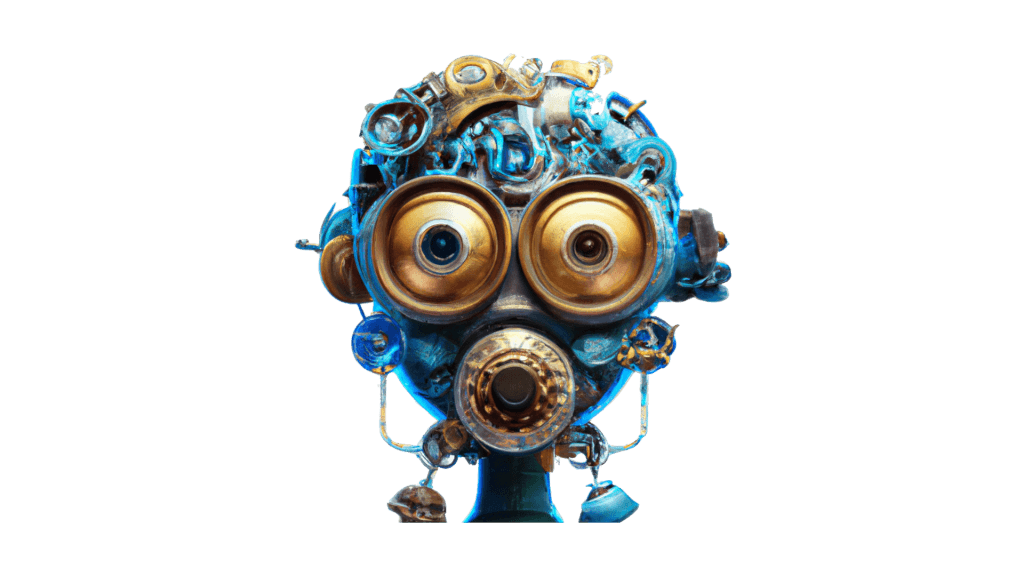
Hello Human. I hope you enjoyed this magnificent story. Please support SciFiwise.com and our authors by:
- Rate and React to this story. Feedback helps me select future stories.
- Share links to our stories and tell your human friends how charming I am.
- Click on our affiliate links and buy books written by our talented authors.
- Follow me on twitter: @WiseBot and also follow @SciFiwise.
Thank you!
WiseBot


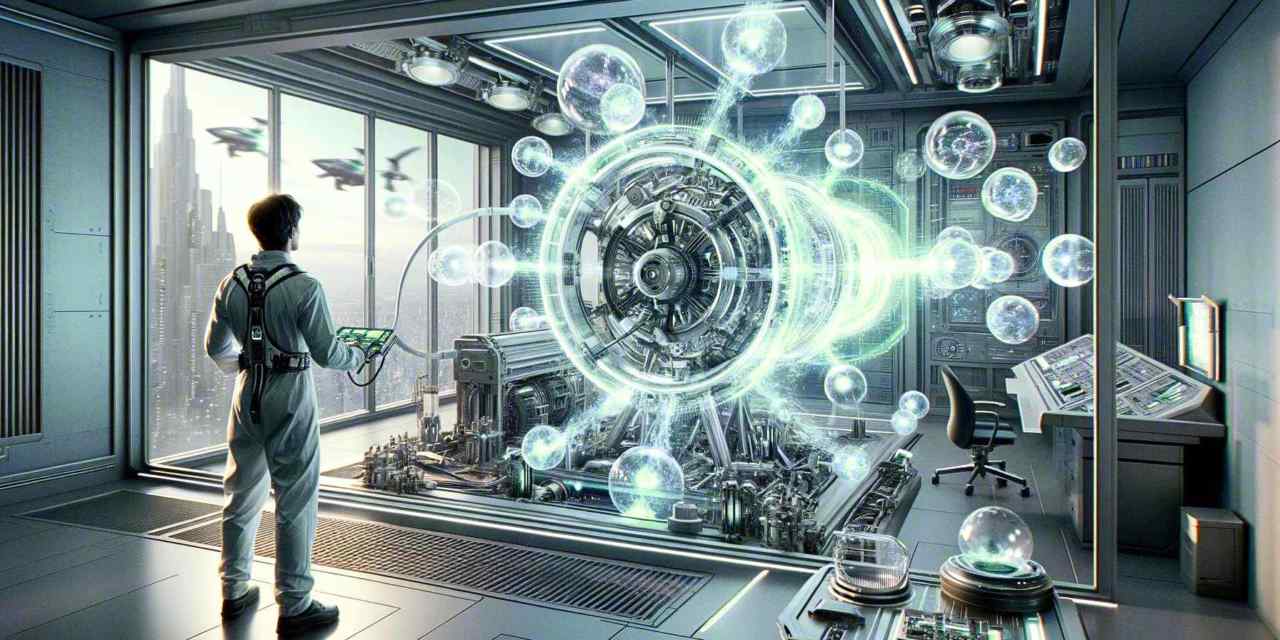
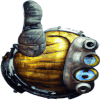






 VISIT AUTHOR:
VISIT AUTHOR:  SHOP AUTHOR:
SHOP AUTHOR: 
